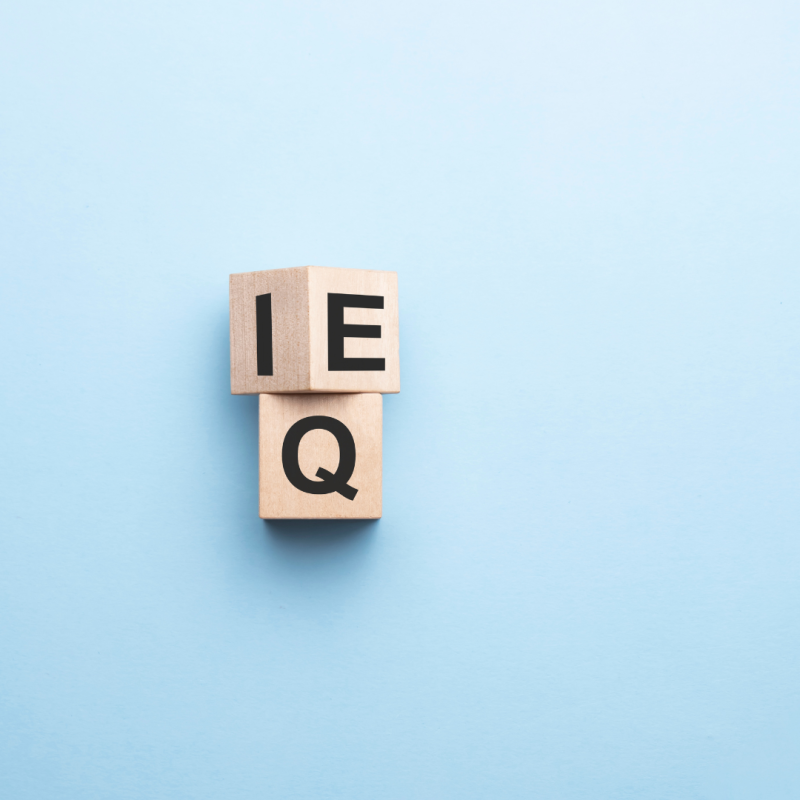How can you develop your EQ: your emotional and social intelligence, and your ability to understand your own emotions, read others’ emotions and read the environment?

Emotional intelligence (EQ) is the ability to recognize, understand, and manage our own emotions, as well as the emotions of others. Developing emotional and social intelligence is an essential skill for personal and professional success. People who have high EQ can navigate social situations with ease, build strong relationships, and lead teams effectively. In this article, we’ll explore some practical tips for developing your EQ.
- Start with self-awareness
Self-awareness is the foundation of emotional intelligence. To develop your EQ, you must first understand your own emotions, triggers, and patterns of behavior. Take the time to reflect on your emotional state throughout the day. Identify your emotional triggers and the situations that make you feel uncomfortable or stressed. Journaling can be a helpful tool for developing self-awareness.
- Practice empathy
Empathy is the ability to understand and share the feelings of others. It’s a crucial aspect of emotional intelligence, as it allows us to connect with others on a deeper level. To practice empathy, try to put yourself in someone else’s shoes. Listen actively to what they’re saying, and try to understand their perspective. This skill takes practice, but the more you do it, the easier it will become.
- Improve your communication skills
Effective communication is a critical component of emotional intelligence. To improve your communication skills, practice active listening, use open-ended questions to encourage discussion, and be mindful of your tone of voice and body language. Pay attention to nonverbal cues, such as facial expressions and body language, as they can often reveal more about a person’s emotional state than their words.
- Develop your emotional regulation skills
Emotional regulation is the ability to manage your own emotions and respond appropriately to the emotions of others. To develop this skill, practice techniques such as deep breathing, mindfulness, and visualization. When you’re feeling overwhelmed or stressed, take a break and engage in an activity that helps you relax and refocus.
- Build strong relationships
Building strong relationships is essential for developing emotional intelligence. To build strong relationships, be genuine, listen actively, and show interest in others. Invest time and effort in building meaningful connections, both personally and professionally. Strong relationships can provide a sense of support, belonging, and motivation.
- Practice social awareness
Social awareness is the ability to read and understand social situations. To develop this skill, pay attention to the dynamics of the group, observe nonverbal cues, and consider the perspective of others. Social awareness can help you navigate social situations with ease, anticipate potential conflicts, and respond appropriately.
In conclusion, developing emotional and social intelligence is a lifelong process. By starting with self-awareness, practicing empathy, improving communication skills, developing emotional regulation skills, building strong relationships, and practicing social awareness, you can improve your EQ and achieve personal and professional success. Remember, developing emotional intelligence takes time and practice, but the rewards are well worth the effort.
Emotional intelligence (EQ) is the ability to recognize, understand, and manage our own emotions, as well as the emotions of others. Developing emotional and social intelligence is an essential skill for personal and professional success. People who have high EQ can navigate social situations with ease, build strong relationships, and lead teams effectively. In this article, we’ll explore some practical tips for developing your EQ.
- Start with self-awareness
Self-awareness is the foundation of emotional intelligence. To develop your EQ, you must first understand your own emotions, triggers, and patterns of behavior. Take the time to reflect on your emotional state throughout the day. Identify your emotional triggers and the situations that make you feel uncomfortable or stressed. Journaling can be a helpful tool for developing self-awareness.
- Practice empathy
Empathy is the ability to understand and share the feelings of others. It’s a crucial aspect of emotional intelligence, as it allows us to connect with others on a deeper level. To practice empathy, try to put yourself in someone else’s shoes. Listen actively to what they’re saying, and try to understand their perspective. This skill takes practice, but the more you do it, the easier it will become.
- Improve your communication skills
Effective communication is a critical component of emotional intelligence. To improve your communication skills, practice active listening, use open-ended questions to encourage discussion, and be mindful of your tone of voice and body language. Pay attention to nonverbal cues, such as facial expressions and body language, as they can often reveal more about a person’s emotional state than their words.
- Develop your emotional regulation skills
Emotional regulation is the ability to manage your own emotions and respond appropriately to the emotions of others. To develop this skill, practice techniques such as deep breathing, mindfulness, and visualization. When you’re feeling overwhelmed or stressed, take a break and engage in an activity that helps you relax and refocus.
- Build strong relationships
Building strong relationships is essential for developing emotional intelligence. To build strong relationships, be genuine, listen actively, and show interest in others. Invest time and effort in building meaningful connections, both personally and professionally. Strong relationships can provide a sense of support, belonging, and motivation.
- Practice social awareness
Social awareness is the ability to read and understand social situations. To develop this skill, pay attention to the dynamics of the group, observe nonverbal cues, and consider the perspective of others. Social awareness can help you navigate social situations with ease, anticipate potential conflicts, and respond appropriately.
In conclusion, developing emotional and social intelligence is a lifelong process. By starting with self-awareness, practicing empathy, improving communication skills, developing emotional regulation skills, building strong relationships, and practicing social awareness, you can improve your EQ and achieve personal and professional success. Remember, developing emotional intelligence takes time and practice, but the rewards are well worth the effort.
Other Articles
Will More Rule & Regulations Offset an Absence of Trust?
